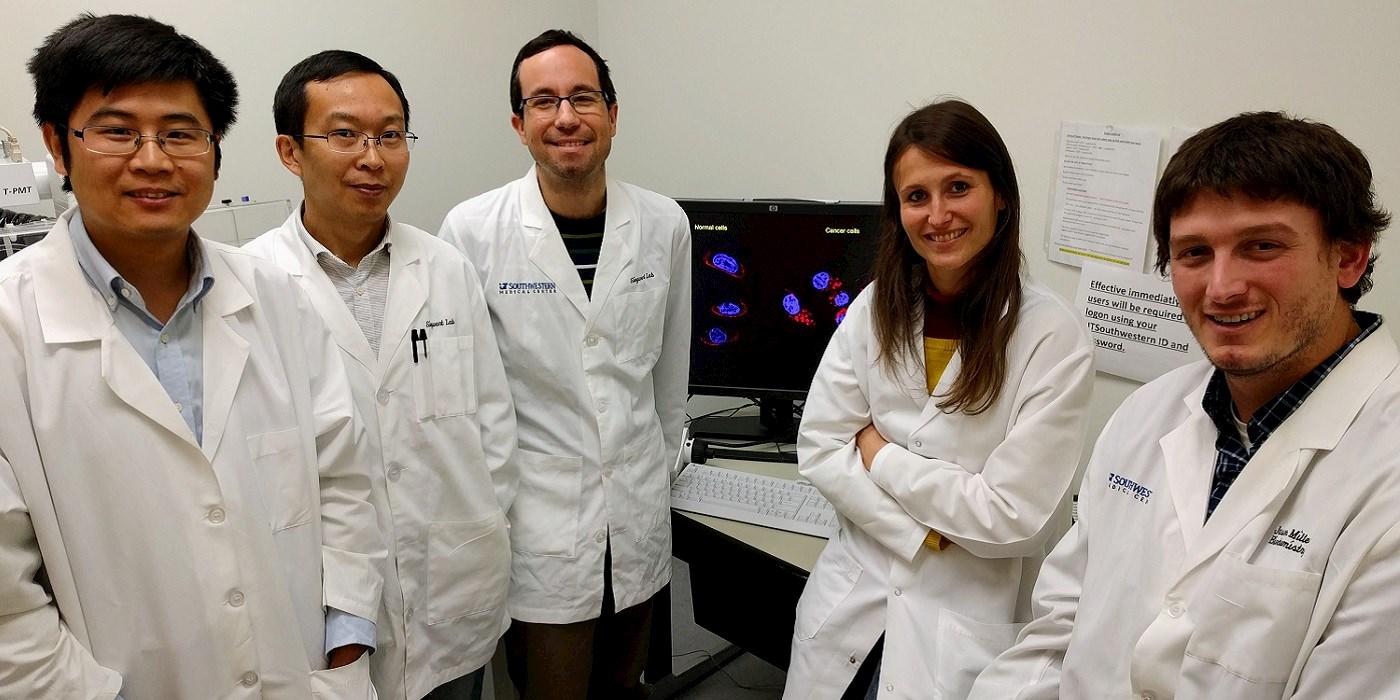CMU Mellon College of Science alumnus Daniel Siegwart and his team of researchers at the University of Texas Southwestern Medical Center have developed synthetic polymers that can attack lung cancer cells without affecting healthy cells.
Using specially designed nanoparticles, these therapies could help doctors more effectively personalize treatment regimens for individual patients, effectively killing off cancer cells while drastically reducing side effects.
Working at the Harold C. Simmons Comprehensive Cancer Center, Siegwart discovered that physical and chemical properties of drug carriers can greatly influence how a human patient might respond to such therapies. They created and evaluated thousands of polymer-based nanoparticles with different diameters, charges and chemical properties to identify the rare ones that could carry drugs only to human lung cancer cells without going inside of normal cells.
Their findings were published in the Proceedings of the National Academy of Sciences in September.
“In a dream scenario, cancer drug carriers are labeled with molecules that act like an address on an envelope that determines where the drug will go. But this approach has not been successful clinically. Stepping back, we implanted human tumors into mice to study what nanoparticle physical properties might inherently promote tumor accumulation. So instead of relying on addresses that can be easily covered up, we showed that certain envelopes themselves can target the tumor,” Siegwart explained.
“In the future, a lab could genetically sequence a tumor and help doctors tailor a menu of treatment options that includes not only the usual radiation and conventional drugs, which indiscriminately kill rapidly dividing cells, but also choose nanoparticle therapies — those envelopes — predicted to most effectively reach cancer cells of a particular patient,” he added.
Siegwart is optimistic that this ability to predict patient responses to nanoparticle therapies will provide customized treatment options within five years.
It could be said that his cancer research began decades ago in Penn Hills Elementary School when, as a kid, he would lock himself in the bathroom to mix his mother’s soaps and perfumes. In middle school at Shady Side Academy, he discovered what would become a lifelong passion for cooking — a fascination with all that ingredient mixing and experimentation. He said his chemistry studies at CMU, where he earned his master’s degree in 2005 and his Ph.D. in 2008, provided a strong foundation in fundamental science.
“In the [Krzysztof] Matyjaszewski lab, I was able to learn how to make these drug carrier polymers in a very specific and precise manner,” he recalled. “That background became essential for research we did at UT Southwestern. … In my current lab we focus more on applied science, but without that background in fundamental science, we would not be able to do it.”
“He was really a very ingenious person,” said Matyjaszewski, the J.C. Warner Professor of Natural Sciences who mentored Siegwart and who himself is recognized internationally for discovering a revolutionary method for synthesizing polymers.
“[He has taken] quite an interesting approach to bridge materials science, polymer chemistry, and biomedicine.”
Now, so many experiments later, Siegwart reflects upon this latest breakthrough.
“I like being at that frontier interface between new ideas and the translational science of creating and developing next generation therapies that have the potential to help lots of people,” he said.
Footnotes
Photo Caption: Siegwart and his research team examine the selective uptake of nanoparticles into cancer cells using confocal fluorescence microcopy (L-R): Dr. Hu Xiong, Dr. Yunfeng Yan, Prof. Daniel Siegwart, Dr. Petra Kos and Jason Miller.




